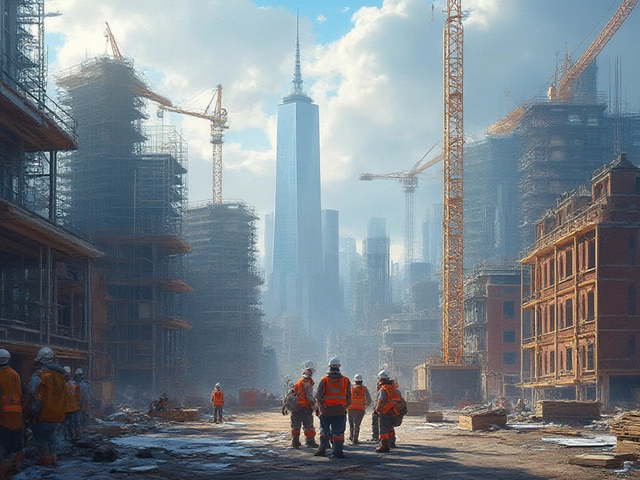Commercial Construction: Practical Guides for Every Builder
If you’re looking at commercial construction, you’ve probably got a lot on your mind – budgets, timelines, and which material will hold up best. The good news is you don’t have to figure it all out alone. Below you’ll find straight‑forward advice that you can start using right away.
Key Topics in Commercial Construction
First, let’s break down the core areas that show up in most commercial projects. Understanding these will make the rest of the process feel less like a maze.
1. Foundations and Soil Tests. A solid foundation is the backbone of any commercial building. Get a qualified structural engineer to run a soil test before you pour concrete. This step tells you whether you need a shallow slab, a deep pile system, or extra reinforcement.
2. Material Selection. Commercial sites often use limestone, concrete, steel, and sometimes reclaimed timber. Limestone from local quarries can lower transport costs and boost sustainability scores. Keep an eye on material grades – a higher grade may cost more up‑front but saves you from costly repairs later.
3. Project Scheduling. Commercial timelines move fast. Use a simple Gantt chart to map out excavation, framing, utilities, and finishing work. Identify the critical path – those tasks that, if delayed, push the whole schedule back.
4. Health & Safety Compliance. Regulations differ between office blocks, factories, and retail spaces. Make sure you have a site safety plan that covers fall protection, dust control, and proper signage. A quick safety audit can prevent stoppages and fines.
How to Choose the Right Materials for Your Commercial Build
Choosing material isn’t just about price. Think about durability, maintenance, and how the material fits the building’s purpose.
Local Limestone. If your project is near a quarry, limestone can be a great choice. It’s strong, easy to cut, and works well for both structural walls and decorative facades. Ask the supplier about the exact compressive strength – you’ll want at least 30 MPa for load‑bearing walls.
Pre‑cast Concrete. For speed, pre‑cast panels can cut weeks off the schedule. They’re manufactured in a controlled environment, so you get consistent quality. Just make sure the transport route can handle the size of the panels.
Steel Framing. When you need large open spaces – like a warehouse or a showroom – steel beams give you the clear spans you need without bulky columns. Check the fire‑rating of the steel and consider applying a protective coating to ward off corrosion.
Recycled Materials. More clients ask for green building credentials these days. Using recycled steel, reclaimed brick, or even reclaimed wood can boost your sustainability score and attract eco‑conscious tenants.
Whatever you pick, ask for a sample and run a quick on‑site test. A small piece of stone or a slab of concrete can reveal a lot about how the material will behave once it’s part of the bigger structure.
Finally, keep communication open with your suppliers. A reliable quarry or concrete plant will let you know about lead times, weather‑related delays, and any changes in material specs. Good relationships cut down surprises and keep the project moving.
Commercial construction can feel overwhelming, but breaking it down into foundation, material, schedule, and safety makes it manageable. Use the guides above as a checklist, stay in touch with experts, and you’ll keep your project on track and on budget.
Is Construction Commercial or Non-Commercial? Here’s How to Tell the Difference

Learn how to tell if a construction project is commercial or non-commercial. Understand the key differences in codes, permits, and costs-and avoid costly mistakes when building for business or personal use.
read moreUnderstanding the 1‑3 Rule in Commercial Construction
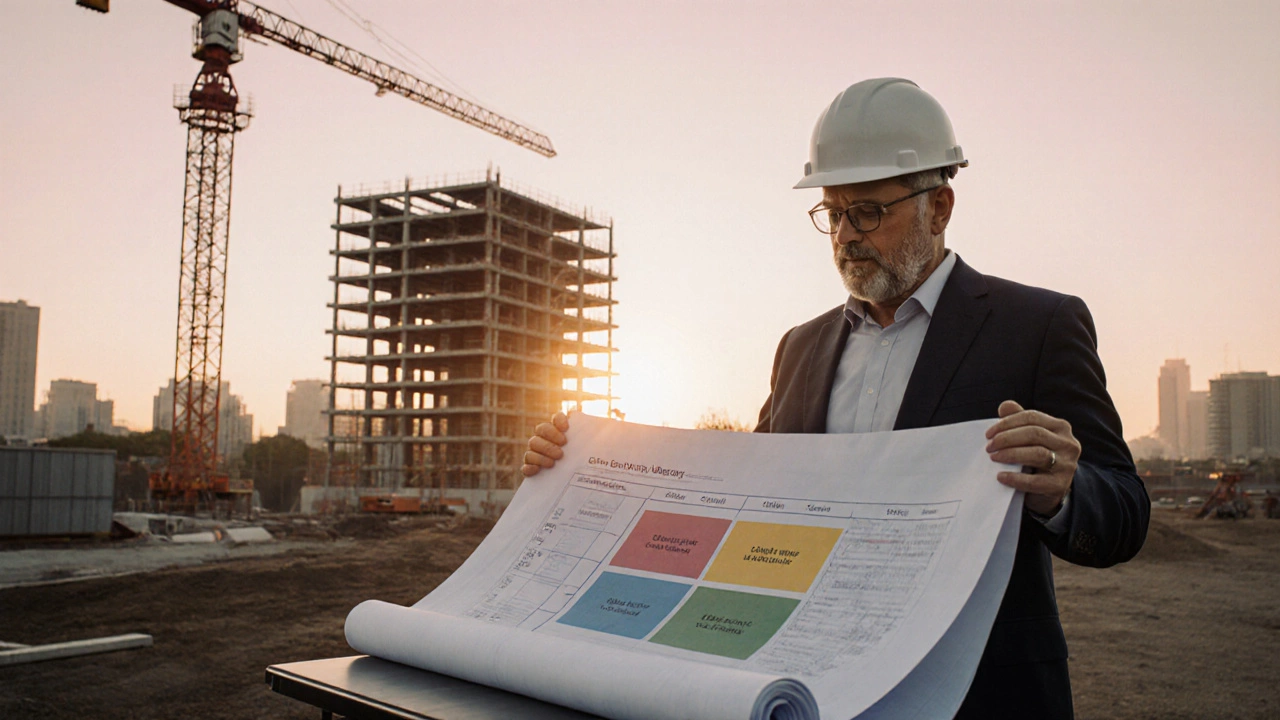
Learn what the 1‑3 rule is, why it matters in commercial construction, and how to apply it to keep projects on schedule and budget.
read moreUnderstanding Commercial Classification: What Counts as Commercial?
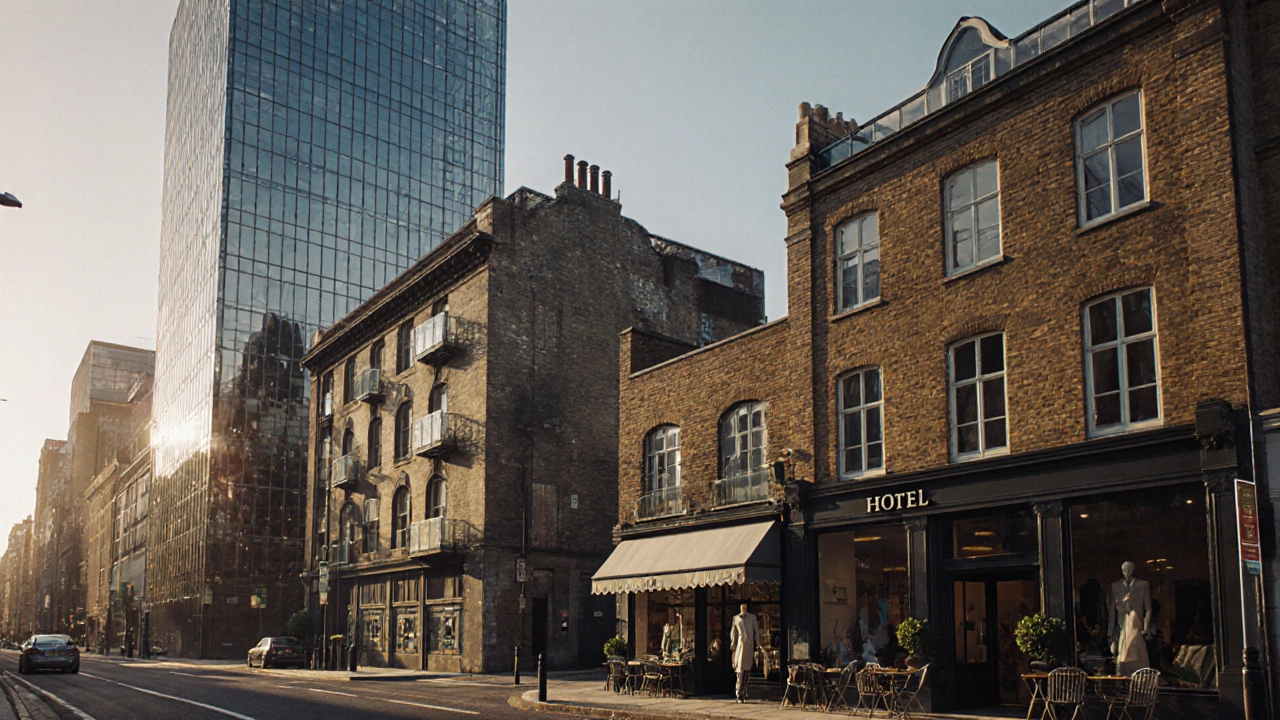
Learn how to tell if a property is commercial, why it matters, and the key criteria-use, size, zoning, and occupancy-that define commercial classification.
read moreCommercial Building Construction Types: Understanding Materials, Classes, and Safety Codes
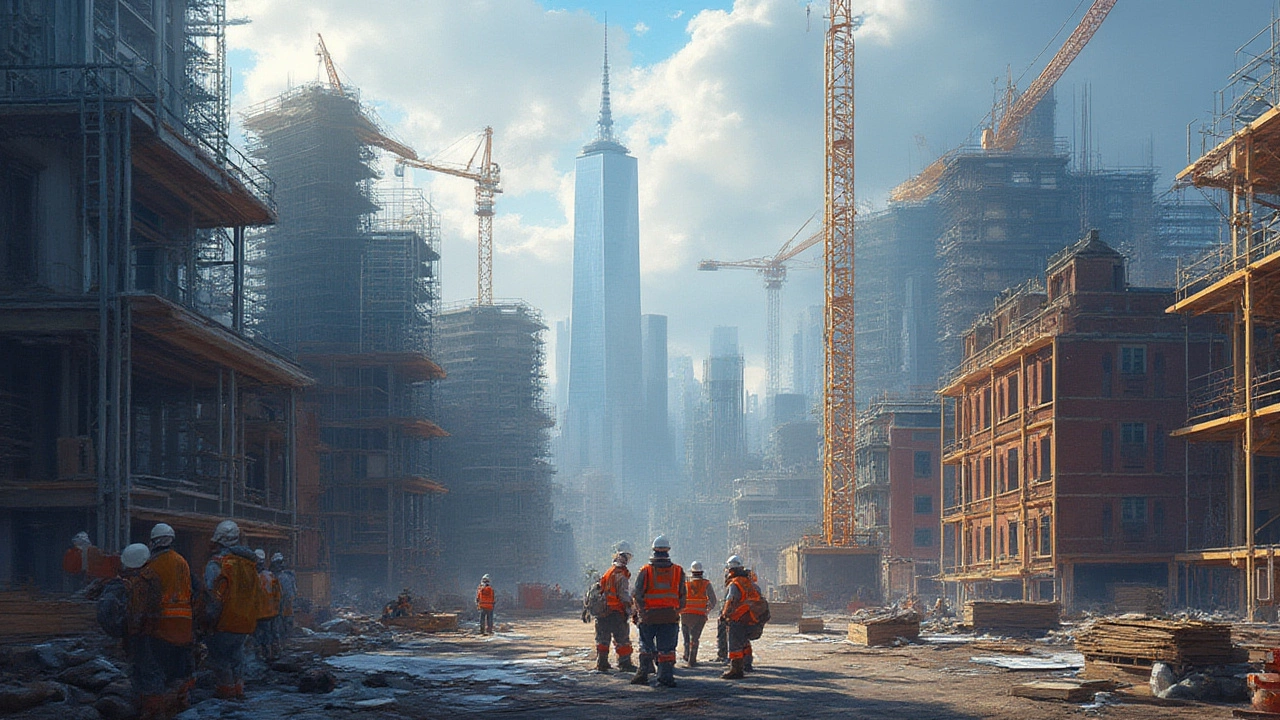
Unpack the world of commercial construction types: materials, safety codes, and what makes a structure tick for your business.
read moreCommercial Project Meaning: Breaking Down the Basics
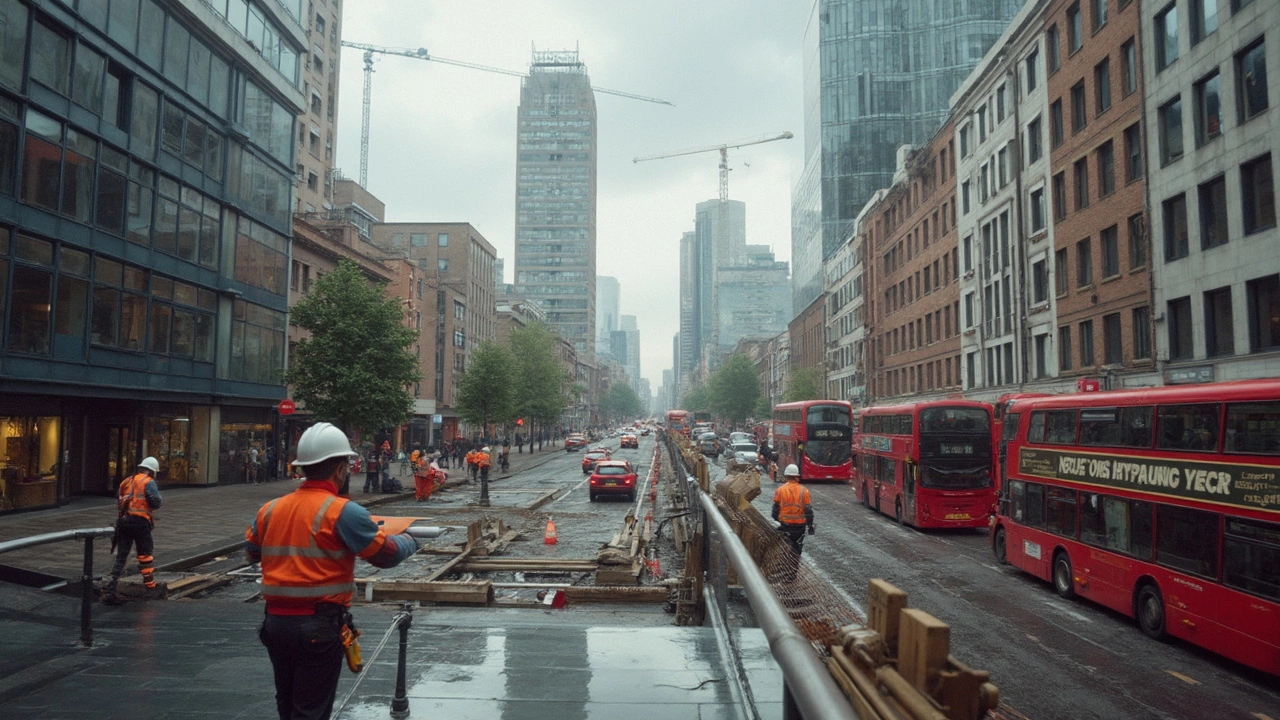
Ever wondered what people really mean when they talk about commercial projects? This article makes sense of the term, showing how it fits into the world of commercial construction. You'll learn what sets commercial projects apart, what types exist, and why getting this right can save money and headaches. Plus, you'll pick up practical tips if you're considering diving into your own commercial project.
read moreWhat Makes a Building Commercial? Key Signs and Simple Insights

Ever wondered what actually makes a building 'commercial'? This article breaks down the main differences between commercial and other types of buildings, using straightforward terms. Discover how zoning, design, regulations, and real-life examples come into play. Get practical tips if you’re looking to buy, lease, or build a commercial property. Walk away with fresh perspectives on a topic that affects nearly every business owner out there.
read moreCommercial Construction: What Makes a Building 'Commercial'?

What really defines a commercial building? This article breaks down what separates commercial from residential properties, focusing on construction rules, uses, common types, and the red tape involved. You'll get practical tips for figuring out if your project counts as commercial, plus warnings about common pitfalls. It's designed to help anyone—from small business owners to developers—spot the signs and steer clear of costly mistakes.
read moreCivil Construction vs Commercial Construction: Key Differences Explained

Civil construction and commercial construction might sound pretty similar if you don't work in the field, but they're actually quite different in what they build, who uses them, and how those projects get managed. This article breaks down exactly what sets the two apart, showing the kind of jobs each involves and what you should watch out for if you're thinking about a project. You'll learn about the scale, regulations, budgets, and even some surprising fun facts about how cities and businesses get built. Whether you're hiring a contractor or just want to sound smart at your next house party, this guide gives you the details in plain English. Expect clear tips and real-world insight—no jargon.
read moreCommercial License Meaning in Commercial Construction: What You Need to Know
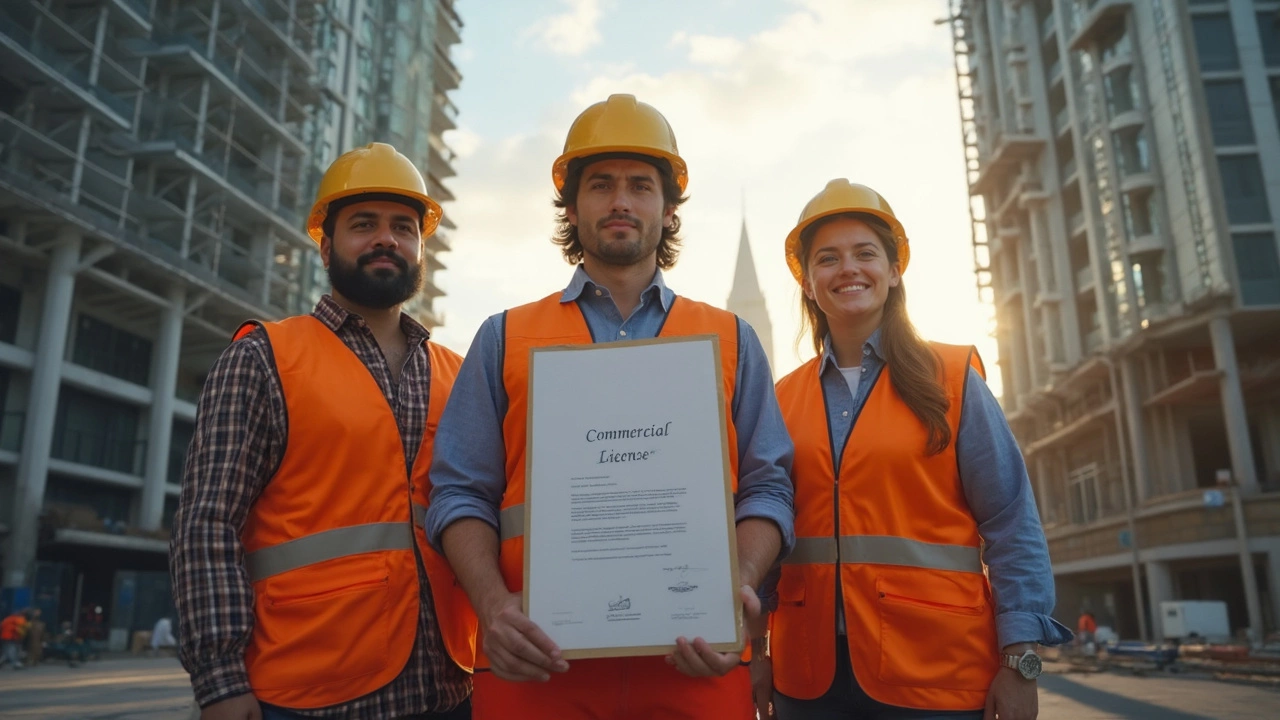
A commercial license in construction isn’t just a piece of paper—it’s your ticket to legally work on commercial projects like office buildings, warehouses, and shopping centers. This article explains what a commercial license means, who needs it, and the real risks of building without one. You’ll also get tips on how to navigate the licensing process and avoid common headaches in commercial construction. If you want to win projects or avoid fines and delays, you’ll want to understand what’s required and what’s at stake. Get real examples, practical insights, and straight talk on commercial licenses.
read moreUnderstanding the Federal Definition of 'Commercial' in Construction
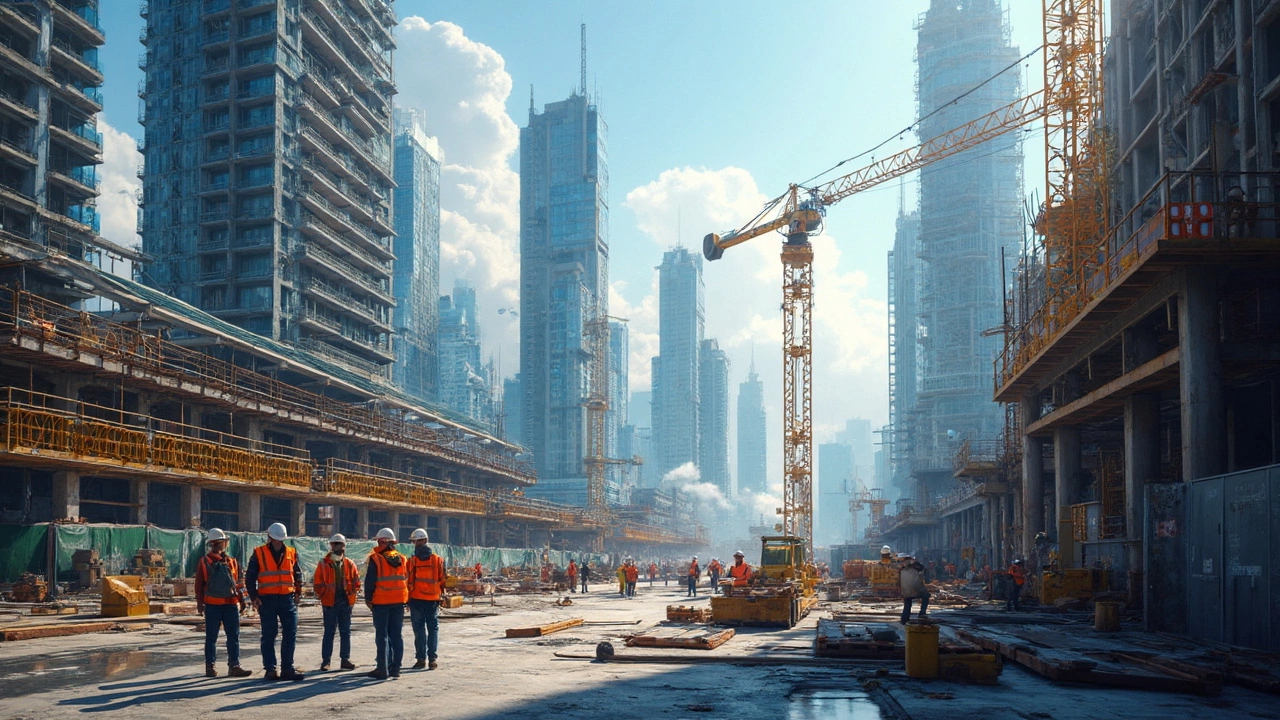
Explore what the federal government means by 'commercial' in the realm of construction. This article helps you navigate the guidelines shaping commercial projects and highlights differences from residential construction. Learn about the key attributes and criteria used in federal codes. This insight is crucial for developers, builders, and anyone curious about the nuances of commercial construction in today's landscape.
read moreUnderstanding Commercial Construction Coverage
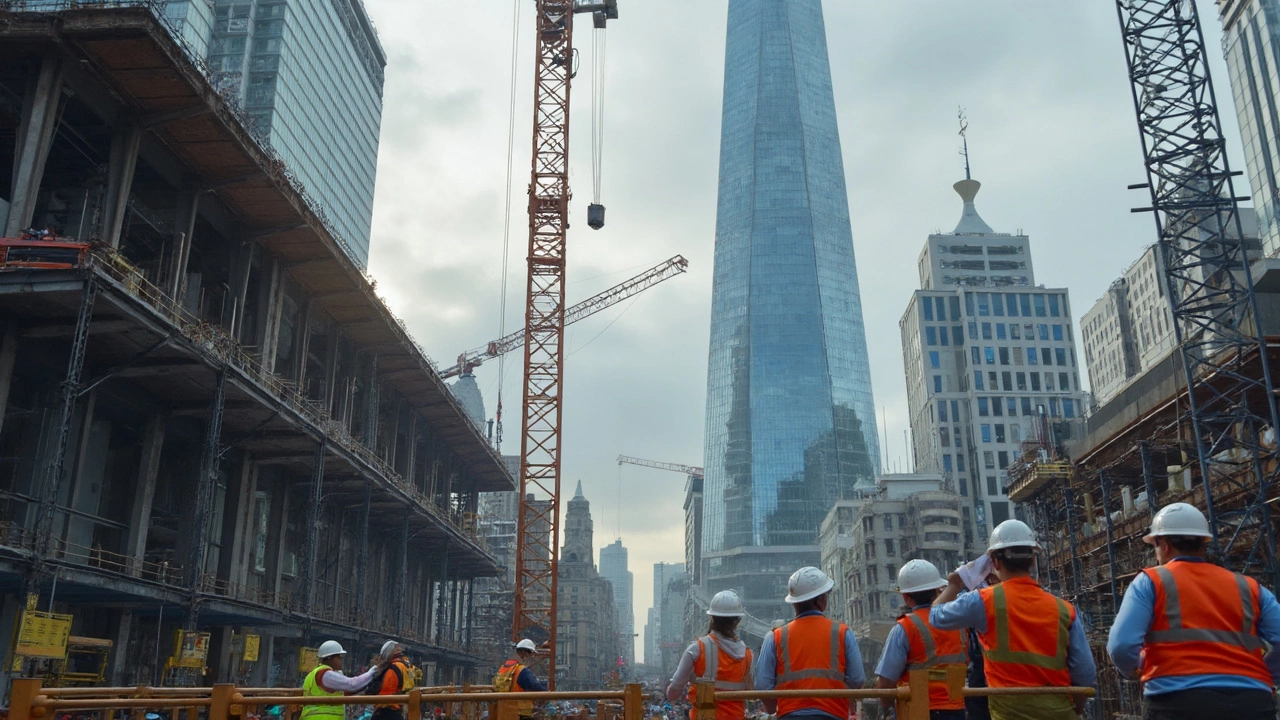
Commercial construction involves more than just putting up a building; it includes a variety of legal, financial, and safety considerations. Understanding what's covered under commercial construction is crucial for developers, contractors, and investors. This article breaks down the key elements of commercial construction coverage, from property protection to liability insurance. We also share tips to ensure you have comprehensive coverage for your next project.
read moreUnderstanding the Differences: Commercial vs. Non-Commercial Construction
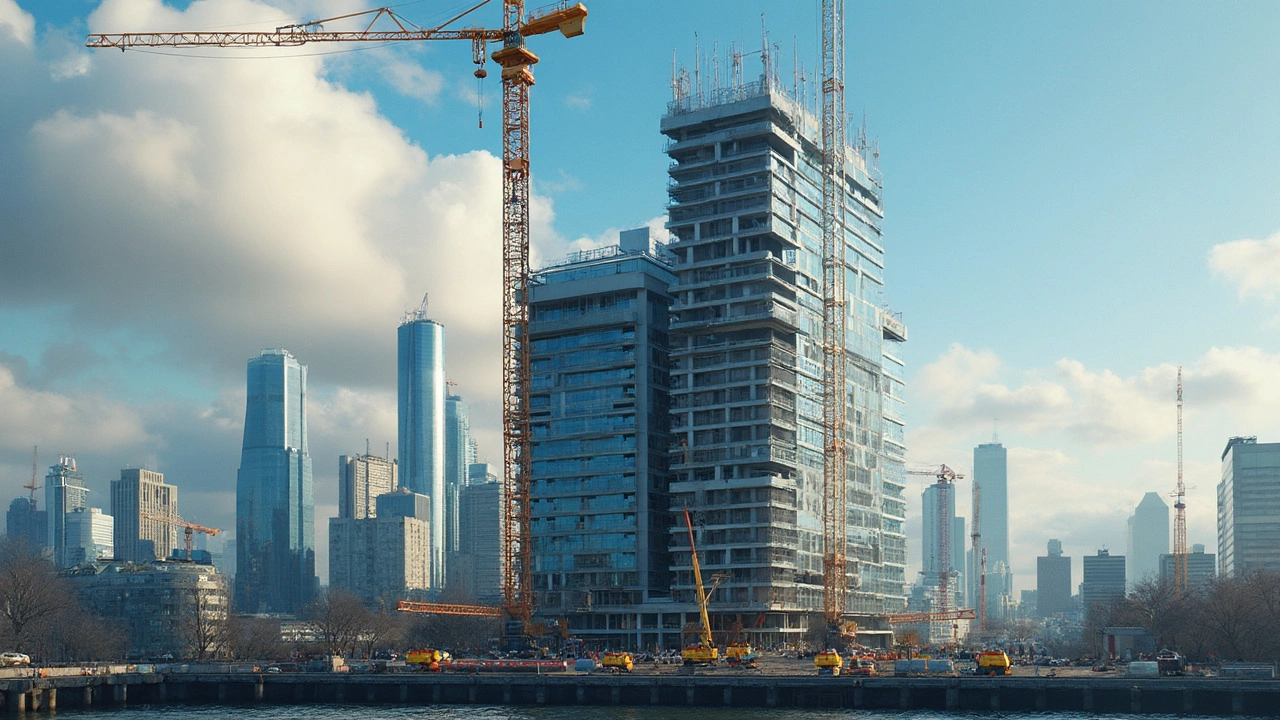
Commercial and non-commercial construction projects might seem similar at first glance, but they cater to different needs and have distinct characteristics. Commercial construction usually focuses on projects like office buildings, malls, or hotels, aiming for profit. Non-commercial projects are often public works or residential homes prioritizing community benefits. Knowing the unique aspects of each helps stakeholders make informed decisions.
read more


